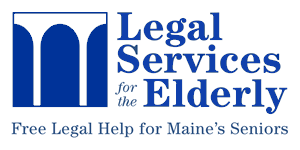Probate Basics
When someone dies, their property and assets are called the “estate.” Probate is the process of distributing the estate according to a Will, or if there is no Will, according to the state “intestacy” law. The intestacy law tells the court what to do with the estate. Usually, under the intestacy law, only relatives of the decedent get anything from the estate.
This section will give you some basic information about the probate process.
- What is probate?
Probate is the legal process that takes place after someone dies. To start the probate process, you need to file an “Application for Probate” in the probate court in the county where the decedent lived. In Maine, each county has its own probate court.
If there is a Will, it needs to be submitted to the probate court. The probate judge will decide whether or not the Will is valid. If the Will names a “Personal Representative” - sometimes called “Executor” or “Executrix” then the court will legally appoint that person to take care of the estate. If the Will does not name a Personal Representative, the court will appoint someone to do this job according to Maine law.
- What does the Personal Representative have to do?
The Personal Representative is in charge of settling the estate. This means that they must: find and make a list of the things in the estate; follow the instructions in the Will if there is one; and pay any outstanding bills if there is enough money to do so. If the Will does not tell the Personal Representative what to do with property in the estate, then the Personal Representative must distribute that property according to the state intestacy law.
If the decedent did not have a Will, the estate is distributed according to Maine’s intestacy law.
The probate court will supervise the Personal Representative during the probate process.
- Why does the estate have to go through probate?
The estate needs to go through probate in order to officially transfer title of the property in the estate to the person or people who inherit according to the Will or state law. Once this happens, other people cannot claim any right to the property. This includes people or companies to which the decedent owed money.
- Does every estate have to go through probate?
No. Certain kinds of property can be passed without going through probate. Property owned with a “Right of Survivorship” automatically transfers to the joint owner at death and that person owns the property fully. Property can also pass through a Trust established during the decedent’s lifetime.
You should talk to an attorney to find out whether an estate needs to go through probate. If you are a Maine resident who is 60 or older, call the Legal Services for Maine Elders Helpline at 1-800-750-5353.
- Do small estates have to go through probate?
In Maine, if an estate is worth no more than $40,000, it is considered a “small estate.” Small estates can be wrapped up quickly by filing a document called a “Small Estate Affidavit.” This is usually a simple process, but there are some legal steps that must be taken before you can wrap up a small estate.
You should talk to an attorney before you transfer any of the property in a small estate. If you are a Maine resident who is 60 or older, call the Legal Services for Maine Elders Helpline at 1-800-750-5353.
- How long will it take to probate the estate?
It depends on the estate. Large estates can take longer to probate than smaller estates. But generally, probate doesn’t take very long in Maine. You should talk to an attorney to get advice on how best to wrap up an estate. The attorney will let you know if the estate needs to pass through informal or formal probate proceedings. Informal probate takes less time than formal probate, and is usually less expensive.
If you are a Maine resident who is 60 or older, call the Legal Services for Maine Elders Helpline at 1-800-750-5353 to talk to an attorney for free.
- Resources
Legal Services for Maine Elders
If you are a Maine resident who is 60 or older and you have questions about the probate process, call the Legal Services for Maine Elders Helpline at 1-800-750-5353 to speak to an attorney for free.
